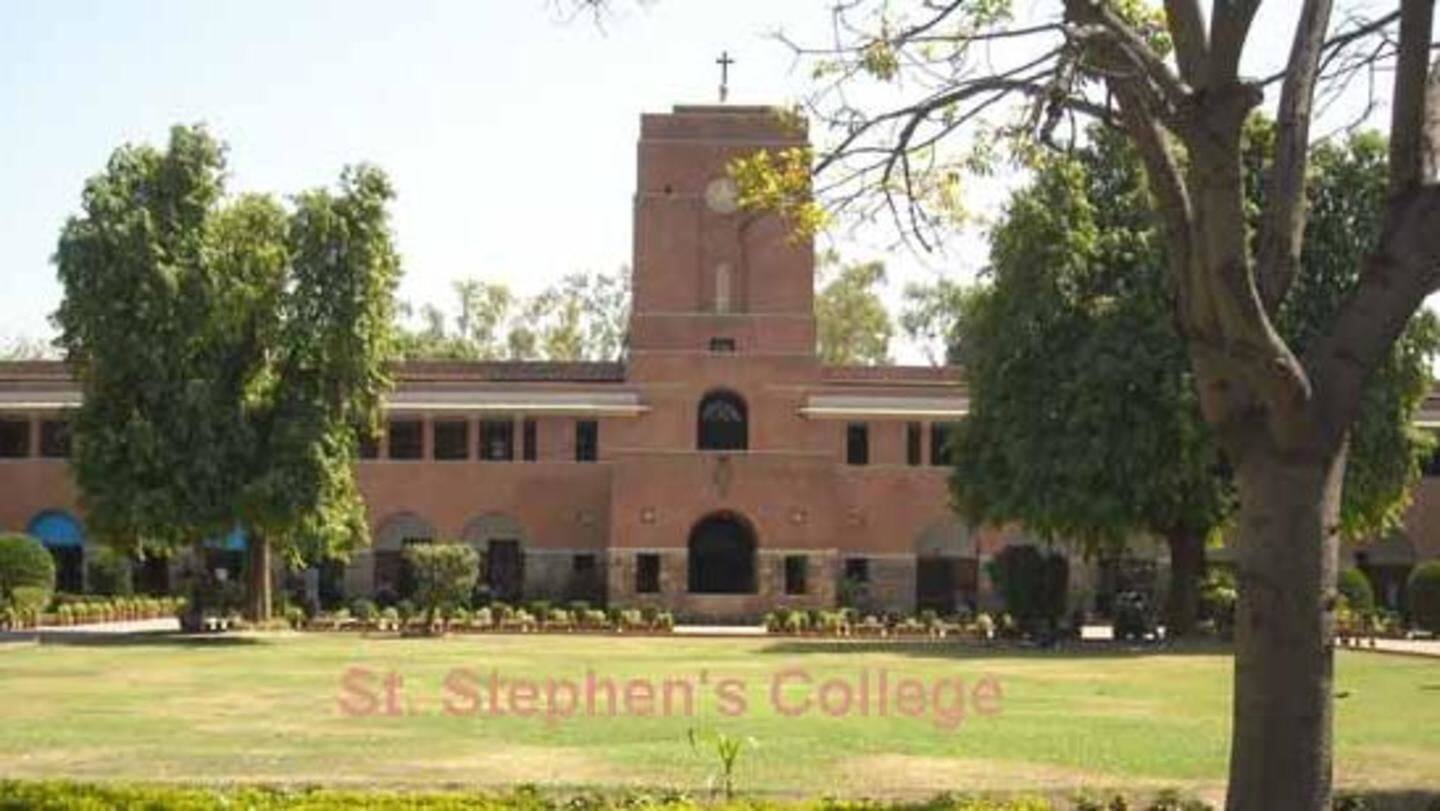
St. Stephen's to get autonomy, transition unlikely to be smooth
What's the story
The University Grants Commission is likely to grant St. Stephen's College (SSC) an autonomous status sometime next week. The move will give SSC - one of the most reputed colleges in the country - the freedom to set everything from tuition fees to the academic syllabi. St. Stephen's had applied for autonomy last year, but the transition might not be smooth. Here's why.
Definition
What powers does autonomy grant a college?
According to UGC guidelines, an autonomous college can prescribe its own courses, redesign and structure academic syllabi, orient its courses towards job requirements, decide fees, evolve new evaluation methods, make its own admissions rules in accordance with prevalent reservation policies, etc.
Protests
UGC inspection of SSC was marked by strong protests
Following SSC's application for autonomy, the UGC conducted its mandatory inspection on 10th and 11th May. However, the inspection committee met strong resistance from teachers and students who alleged that the college had "hand-picked certain teachers and a few parents to create a false narrative of support for autonomy." They alleged that 2017 UGC guidelines, which call for consultation with all stakeholders, were violated.
Autonomy verdict
The fateful decision is expected to come on May 24
Despite the protests, the UGC inspection committee successfully examined the infrastructure of SSC, and interacted with students, as well as teaching and non-teaching staff. It submitted its report to the UGC, which is likely to take up SSC's proposal for autonomy in a meeting scheduled for May 24. If the proposal is approved, the UGC will send a letter to DU ordering SSC's autonomy.
Reason
Why granting SSC autonomy is significant
Delhi University is not on the list of 60+ universities and colleges which were given autonomy by the UGC in March - if St. Stephen's gets autonomy, it'll be the first DU college to get it. The Delhi University Teacher's Association, and several officials of DU's Executive Council reportedly feel that the move would open the floodgates for privatization and commercialization of DU colleges.
Fears
Why the proposition of autonomy has teachers, students bothered
The fear among students is that autonomy will lead to a reduction in government grants. Further, they feel that the fees would increase, resulting in exclusion of the socioeconomically marginalized from the already elite sphere of higher education. Teachers, on the other hand, fear ad-hoc appointments, unstable work, and a drop in academic standards. In fact, 44 of 56 permanent SSC faculty has opposed the move.
But, why autonomy?
The argument in favour of autonomy
However, despite these fears, several experts are of the opinion that autonomy and efficiency-driven governance, in fact, would be good for India's clunky higher education system. For instance, Parth Shah of the Centre for Civil Society said that excessive state control in higher education has created a bad environment with no accountability and opaque institutions like the UGC and AICTE.
Details
MHRD's promises point towards a US-like mixed-funding model
Meanwhile, in a bid to mollify students and teachers, the MHRD had earlier announced that there would be no cuts in government grants on account of autonomy. This points towards a mixed-funding model, like that used in the US. While evidence has shown this model to result in sharp increases in fees, it also allows universities to maintain greater quality compared to state-funded models.